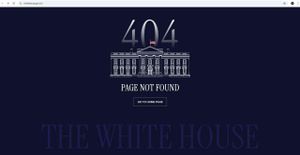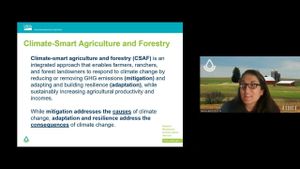U.S. Transportation Secretary Sean Duffy has initiated significant changes to the fuel efficiency standards set by the Biden administration, causing considerable concern among environmental groups and several stakeholders within the automotive sector.
Duffy’s swift actions come just hours after his swearing-in, where he issued a memorandum directing the National Highway Traffic Safety Administration (NHTSA) to reassess the Corporate Average Fuel Economy (CAFE) standards. These standards, which were positioned to combat climate change and boost fuel efficiency, aimed to significantly reduce gas consumption for vehicles across the board. By contrasting the past federal policies, Duffy's actions mark a dramatic shift toward more lenient regulations.
On January 24, 2025, Acting Solicitor General Sarah Harris, representing the Biden administration, filed objections against Duffy’s reassessment, highlighting concerns from environmentalists. According to the Sierra Club, this move presents “an existential threat” to the efforts made to combat climate change through stricter emissions controls.
The tensions also extend to California, where the state’s stricter emissions standards are at risk of becoming uncertain. The Environmental Protection Agency (EPA) had previously reinstated California's authority to set those emissions rules, allowing the state to lead the way for other states to follow. The influence of California's regulations on the rest of the nation has been under scrutiny as the battle continues between federal and state powers over environmental control.
“By undermining California's emissions regulations, the federal government is jeopardizing the progress we’ve made on climate change. This isn’t just about cars; it’s about our health and future,” stated Rebecca Leber, climate policy advocate for the Center for American Progress.
Despite the backlash, Duffy's stance echoes the sentiments of the Trump administration, which sought less stringent fuel economy regulations. Duffy's directives come as part of the broader strategy to fulfill campaign promises aimed at reducing federal overreach and regulatory burden on the auto industry.
The backlash from environmental groups and state officials has been vocal, as they express concerns about how this regulatory rollback could hinder nationwide efforts to transition to electric vehicles and reduce reliance on fossil fuels. Numerous industry experts argue this could stall technological advances needed to address climate challenges, undermining years of progress.
The California Air Resources Board (CARB) has indicated it will challenge any federal rollback of its emissions standards, which could lead to legal battles reminiscent of previous disputes between federal and state regulations on environmental policies.
Political analysts point to the potential fallout for the Biden administration, which has made climate change and environmental policy central tenets of its platform. They warn public outcry could gain substantial momentum as consumers voice their dissatisfaction with policies perceived as detrimental to environmental health.
With so many variables at play, the shifting sands of U.S. automotive regulations are likely to see more protests from environmental groups, pushing back against the federal government’s new approach. Activists across various organizations are mobilizing to intensify their campaigns, urging the public to hold the government accountable. Go Green Campaign’s director recently noted, “We won’t back down without making our voice heard. It is imperative for us to protect our planet.”
The auto industry itself is experiencing its own internal conflicts; manufacturers are concerned about consistency. Major players like Ford and General Motors (GM) previously recalibrated production lines according to Biden’s fuel efficiency goals. Now, some are left pondering how to realign strategies with incoming changes, which could disrupt supply chains and investment plans.
Automakers have started voicing concerns, stating the rollback may prompt litigation over safety concerns, endorsement cancellations, and serious economic uncertainty if consumer confidence is shaken.
Overall, this situation remains one of contention—one where environmental advocates and the auto industry passionately disagree on the best pathways forward. Environmentalists seek assurance on emission standards to combat climate change more effectively, whereas motor vehicle manufacturers express need for adaptability and market-driven efficiency.
The future of U.S. auto emissions regulation holds significant consequences not only for the automotive industry but also for the country’s environmental policies and the global fight against climate change.



